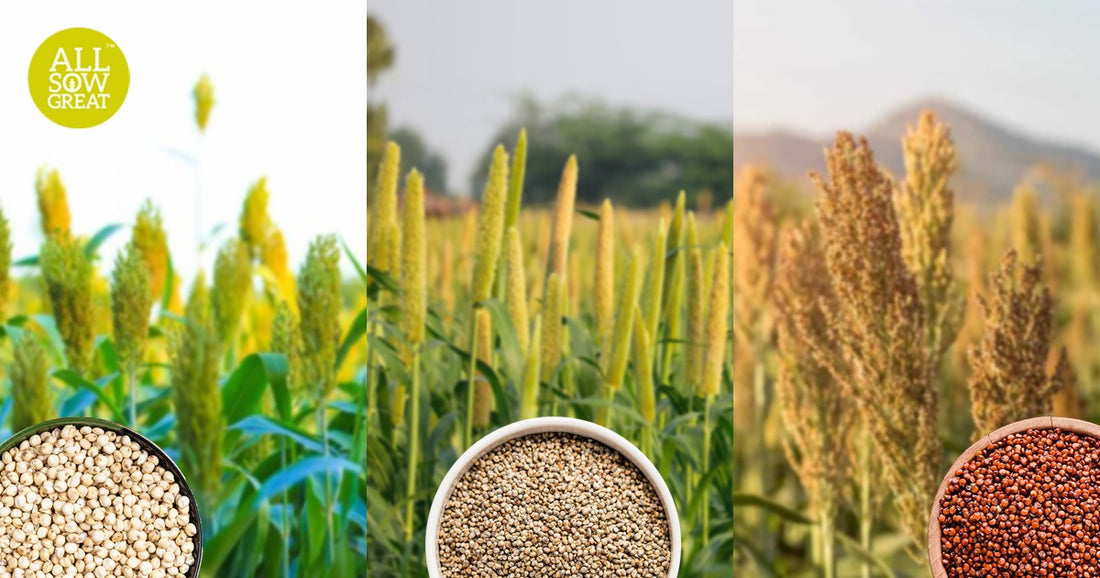Happy
Millets, often termed as ancient grains, have been a staple in many cultures for thousands of years. These small-seeded grasses are known for their nutritional density and health benefits, particularly for digestive health. In a world where digestive disorders are increasingly common, incorporating millets into your diet can be a game-changer. This article explores the digestive benefits of millets, focusing on their high fiber content, prebiotic properties, and overall impact on gut health.
The Importance of Digestive Health
Before delving into the benefits of millets, it’s crucial to understand the importance of digestive health. The digestive system is responsible for breaking down food, absorbing nutrients, and eliminating waste. A healthy digestive system ensures that your body gets the necessary nutrients to function correctly. Poor digestive health can lead to a range of issues, including bloating, constipation, diarrhea, and more severe conditions like Irritable Bowel Syndrome (IBS) and inflammatory bowel diseases.
Fiber: The Digestive Powerhouse

One of the most significant benefits of millets is their high fiber content. Dietary fiber is essential for a healthy digestive system. It adds bulk to the stool, making it easier to pass and thus preventing constipation. Fiber also helps in regulating bowel movements and maintaining bowel health.
Millets such as sorghum, pearl millet, finger millet, and foxtail millet are particularly rich in both soluble and insoluble fiber. Soluble fiber dissolves in water to form a gel-like substance, which can help lower blood cholesterol and glucose levels. Insoluble fiber, on the other hand, adds bulk to the stool and aids in its passage through the digestive tract.
Prebiotic Properties: Nourishing Your Gut Microbiome
The human gut is home to trillions of microorganisms, collectively known as the gut microbiome. These microorganisms play a crucial role in digestion, immunity, and overall health. Maintaining a healthy gut microbiome is vital for optimal digestive health, and this is where millets come in.
Millets contain prebiotic fibers, which are non-digestible food components that beneficially affect the host by stimulating the growth and activity of beneficial gut bacteria. Prebiotics act as food for probiotics, the beneficial bacteria in the gut. By nourishing these bacteria, prebiotics help maintain a balanced gut microbiome, which is essential for efficient digestion and overall health.
Millets and Digestive Disorders
Incorporating millets into your diet can also help manage and prevent various digestive disorders. For instance, the high fiber content in millets can alleviate symptoms of constipation and IBS. Millets are gluten-free, making them an excellent alternative for individuals with celiac disease or gluten sensitivity. Gluten can cause inflammation and damage to the small intestine in people with celiac disease, leading to a range of digestive issues. By choosing millets, individuals with gluten-related disorders can enjoy a nutritious and diverse diet without the adverse effects of gluten.
Specific Millets and Their Digestive Benefits
- Sorghum (Jowar): Sorghum is rich in fiber and antioxidants. It aids in improving digestion by preventing constipation and promoting a healthy gut microbiome. The antioxidants in sorghum also help reduce inflammation in the digestive tract.
- Pearl Millet (Bajra): Pearl millet is known for its high fiber content and alkaline nature, which helps in reducing acidity and promoting digestive health. It is also easy to digest and suitable for people with gluten intolerance.
- Finger Millet (Ragi): Finger millet is an excellent source of soluble and insoluble fiber, aiding in better digestion and preventing constipation. Its prebiotic properties also support the growth of beneficial gut bacteria.
- Foxtail Millet (Kangni): Foxtail millet is rich in dietary fiber, helping regulate bowel movements and preventing digestive disorders. It also has a low glycemic index, which is beneficial for managing blood sugar levels and supporting overall digestive health.
How to Incorporate Millets Based food into Your Diet

Incorporating millets into your diet is easy and versatile. They can be used in a variety of dishes, from breakfast to dinner. Here are some ideas:
Breakfast:
- Start your day with a nutritious meal using All Sow Great’s Jowar Flakes. Prepare a delicious Jowar Flakes Poha. You can also make a hearty Millet Porridge using a mix ofAll Sow Great’s Jowar Flakes.
Lunch:
- Replace rice or pasta with millet for a healthier lunch option. Use All Sow Great’s millet products to create Millet Salads or Millet Bowls.Millets can be cooked and mixed with fresh vegetables, lean proteins, and dressings for a nutritious meal.
Dinner:
- For dinner, millets can be the star of many savory dishes. Try making Millet Upma or Millet Khichdi blending them with your favorite spices and vegetables.
Snacks:
- All Sow Great offers a range of millet-based snacks that are both tasty and healthy. Enjoy All Sow Great’s cookies for a delightful treat with your tea or coffee. All Sow Great’s Jowar Chivda is a perfect gluten-free snack that you can munch on anytime. Additionally, you can use popped millets to create Millet Bars for a satisfying and nutritious snack option.
- By incorporating All Sow Great’s millet products into your daily diet, you not only enjoy delicious meals but also add millet to your diet.
Millets are more than just a nutritious grain; they are a boon for digestive health. Their high fiber content, prebiotic properties, and gluten-free nature make them an ideal choice for maintaining a healthy digestive system. By incorporating millets into your diet, you can enjoy a wide range of digestive benefits, from regular bowel movements to a balanced gut microbiome. Start including millets in your meals today and experience the positive impact on your digestive health.

